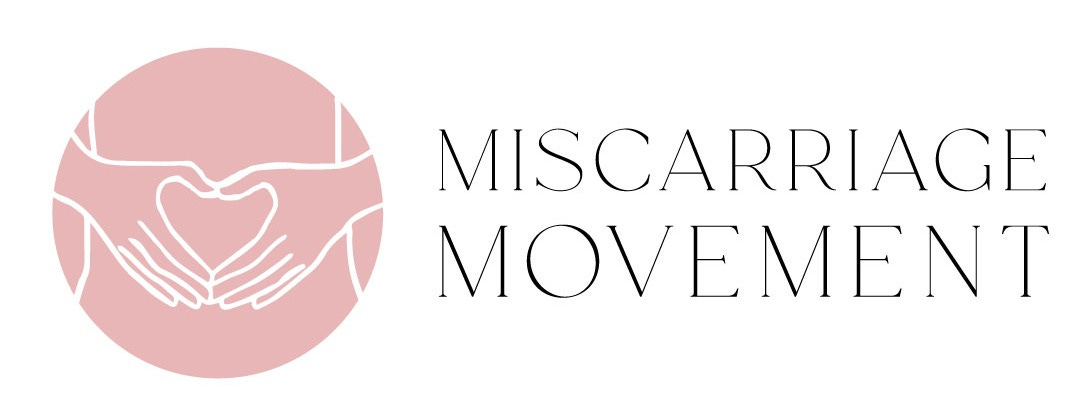When a Sports League Shows More Fertility Support Than Most Workplaces
The WTA just did something major. And it shouldn’t be revolutionary—but it is.
Every so often, we get to share good news.
This is one of those moments.
This week, the Women’s Tennis Association (WTA) updated its policies to support players undergoing fertility treatment. Under the new rule, athletes who take time off to freeze their eggs or embryos will be granted ranking protection, meaning they won’t lose career standing during their break—and can return to up to three tournaments using their previous ranking.
It might seem small. But it’s not.
Because when a major sports organization recognizes fertility care as worthy of career protection, it challenges one of the most insidious norms in modern work culture:
That if you want to build a family, you better be ready to do it quietly, inconveniently, and without asking for support.
That message is everywhere.
In the startup world, where investors still question whether women of a “certain age” are a risk.
In hospitals, where providers often minimize loss or rush through reproductive decisions.
In HR offices, where fertility care is seen as optional—or worse, indulgent.
So when the WTA says, in writing:
Fertility is not a pause. It’s a priority.
We see the emotional, physical, and financial labor it requires.
And we’re building space for it.
That’s not just policy. That’s progress.
And it matters far beyond the court.
Because for many of us in the fertility and loss community, the choice to try—to freeze, to retrieve, to recover, to start again—isn’t just a personal decision. It’s a professional liability. A financial gamble. A logistical nightmare.
We’ve taken hormone shots between Zoom calls.
We’ve bled through meetings.
We’ve cried in supply closets after getting news that no one else at work knew we were even waiting for.
So no—ranking protection isn’t just for tennis players.
It’s a signal.
That fertility is part of life, not an interruption of it.
That reproductive care deserves structural support—not just sympathetic nods.
That you shouldn’t have to sacrifice your future to protect your present.
At Miscarriage Movement, we’ll keep advocating for the kind of systemic change that makes this less of a “headline” and more of a norm.
Because let’s be honest: if professional athletes can get time and protection to pursue fertility care, why are the rest of us still pretending it’s not happening?
This Week’s Top News Stories:
Mom Shares Pregnancy Loss—and How Reborn Dolls Help Her Cope
Christina Keeler, a Texas mom of two and creator of the YouTube channel The Reborn Family, is opening up about her recent miscarriage at 10 weeks—and how her lifelike reborn dolls are helping her heal. Though she previously shared a past pregnancy loss with her 38,000+ subscribers, this time she’s documenting her grief in real time. Initially unable to face the dolls, Christina eventually found comfort in one: a baby boy doll that represents the son she and her husband had hoped for. “I know he’s not real,” she said. “But I get to do the fun baby boy stuff... it gives me a little nugget of that joy.” After backlash over her doll content led to her husband losing his job, the family relocated to Texas. Now, Christina hopes sharing her story can help others feel less alone in their own loss. (Read more)
Legal Expert Slams Miscarriage Criminalization as “Violently Anti-Woman”
Constitutional law scholar Melissa Murray is calling out the growing trend of criminalizing pregnancy loss, describing it as “violently anti-woman” in a recent MSNBC interview. Speaking with Ali Velshi, Murray explained how abortion bans and personhood laws are being used to investigate and even prosecute people for miscarriages—particularly those who are already vulnerable or marginalized. “This isn’t about protecting life,” she said. “It’s about controlling women—how we live, how we parent, and how we grieve.” Her warning comes as more states expand legal surveillance around pregnancy outcomes, blurring the line between personal tragedy and criminal suspicion. (Watch now)
AI Helps Woman Conceive After 19 Years and 15 Failed IVF Cycles
After nearly two decades of infertility and 15 unsuccessful rounds of IVF, a woman has become pregnant thanks to a groundbreaking AI tool developed at Columbia University. The technology, called STAR (Sperm Track and Recovery), was able to locate 44 viable sperm cells in less than an hour—something embryologists had been unable to do manually, even after days of searching. The woman, identified only as Rosie, and her husband had long struggled with male-factor infertility and had nearly given up hope. But the AI-driven procedure enabled them to complete an IVF cycle earlier this year that resulted in a successful pregnancy. While the technology is still in early use, experts say it could represent a turning point in how we treat infertility—especially for couples facing complex diagnoses. For Rosie, it meant something much simpler: a second chance at the baby she never stopped hoping for. (Read more)
Prosecutor Group Warns Women Not to Call Police After a Miscarriage
After a West Virginia prosecutor advised women to report miscarriages to law enforcement—claiming it could protect them from prosecution—the state’s Prosecuting Attorneys Association quickly pushed back, calling the advice “incorrect and not supported by state law.” Advocates say the incident highlights growing confusion and fear in the post-Roe legal landscape, where pregnancy loss is increasingly viewed through a criminal lens. Legal experts warn that involving police in miscarriage care could have dangerous consequences, especially for marginalized communities. (Read more)
Vanessa Grimaldi Shares Second Miscarriage in Less Than a Year
Bachelor Nation alum Vanessa Grimaldi, 37, has revealed she suffered her second miscarriage within a year, sharing her loss on Instagram just two days ago. The former reality star wrote that hearing the news during an ultrasound made her grief feel “heavier, more complicated, and harder to put into words.” She described finding solace in her two-year-old son Winston’s room, saying it offered her a “sense of peace.” While expressing profound sorrow for the baby she never got to meet, she also acknowledged gratitude for the life she’s experiencing with Winston. . Feeling “mentally foggy,” she’s kept herself busy to cope, and even a simple iced cappuccino brought by her husband became “the first step back to myself.” Vanessa closed her post with a message of solidarity: “To every mama navigating this kind of heartbreak… you’re not alone in this. I see you, I’m grieving with you.” (Read more)
Must-Read Story of the Week
You May Be Depressed After Your Miscarriage: Here’s How to Navigate Your Grief
When someone you love has a miscarriage, it’s not just heartbreaking—it can be completely disorienting. One day there’s joy and anticipation. The next, there’s silence. And for many, that silence turns into something heavier: depression.
A recent reflection by a licensed mental health counselor underscores a reality we know all too well—miscarriage isn’t just a physical loss. It can be a mental health crisis.
While grief is a natural response, depression after pregnancy loss can look like: unshakable sadness, numbness, exhaustion, guilt, insomnia, intrusive thoughts, or even a loss of interest in life altogether. And yet, so many people don’t get the care they need—especially when they’re told to “just move on” or “try again.”
The risk is higher for those with a history of mental health struggles, previous losses, minimal support, or relationship stress. Hormonal fluctuations only intensify what’s already a deep emotional wound.
Support matters. Therapy can help. Medication is sometimes necessary. And simple, steady human care—from showing up with dinner to helping with childcare to just listening—can make a massive difference.
If you’ve felt this kind of weight after loss, you’re not weak, and you’re not alone.
And if someone in your life is struggling to get out of bed after a miscarriage, believe them. Stay close. Offer help. And never minimize the pain.
Healing is possible. But first, we have to name what hurts. (Read more)
When a major sports league protects fertility care, it’s not just a win for athletes.
It’s a signal that the tide is turning.
Because for too long, pregnancy, loss, IVF, and recovery have been treated like detours—things you’re expected to handle quietly, behind the scenes, without slowing anyone else down.
But this week, the WTA said: actually, your future matters. Your timeline matters.
And that simple shift? It’s not small—it’s seismic.
We’re not asking for handouts.
We’re asking for infrastructure.
Support that doesn’t depend on luck, privilege, or silence.
Policies that meet us where we are—in the try-agains, the hormone swings, the heartbreak, the hope.
This isn’t just about tennis.
It’s about momentum.
And we’re bringing it with us.
—Miscarriage Movement







